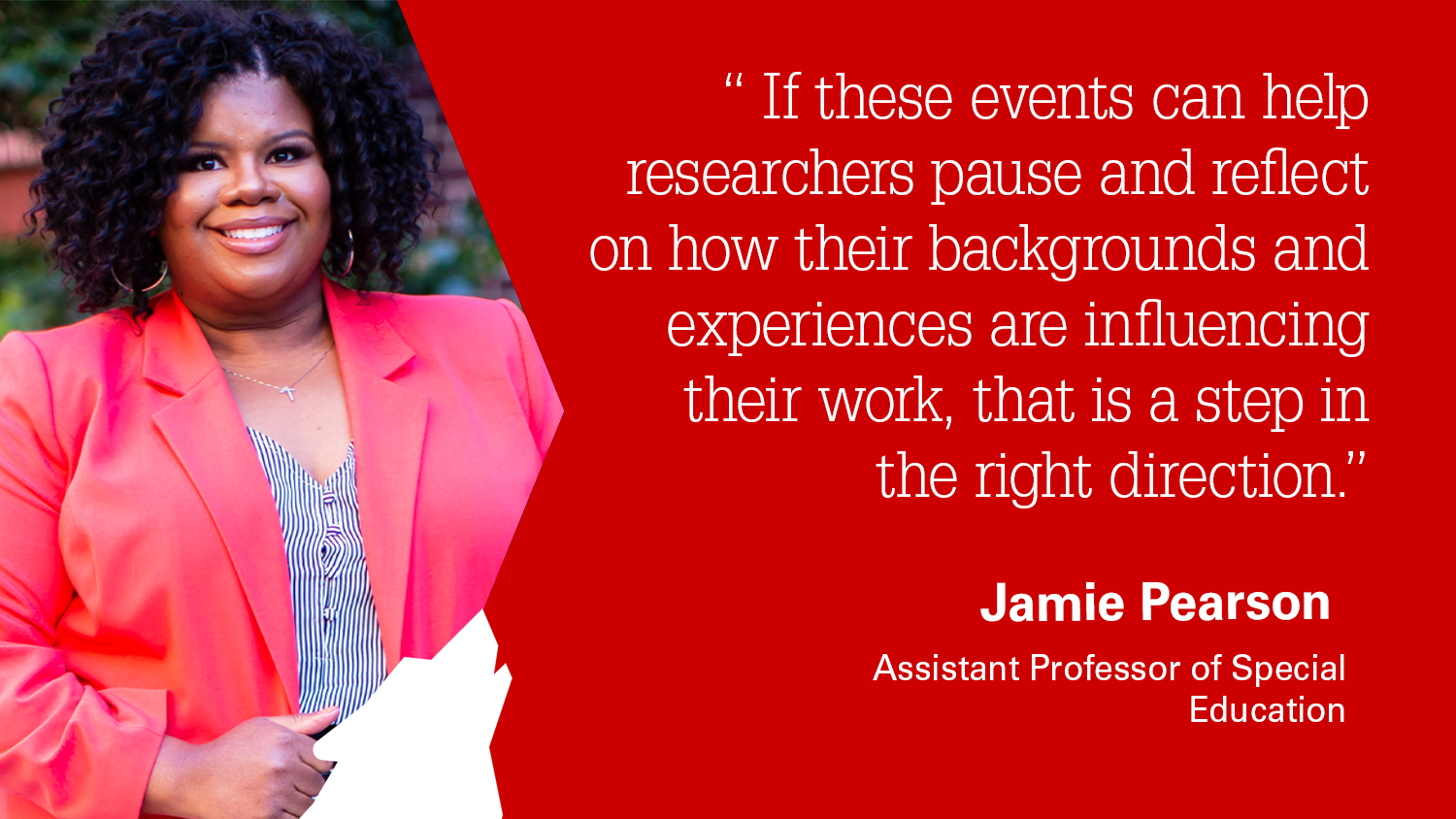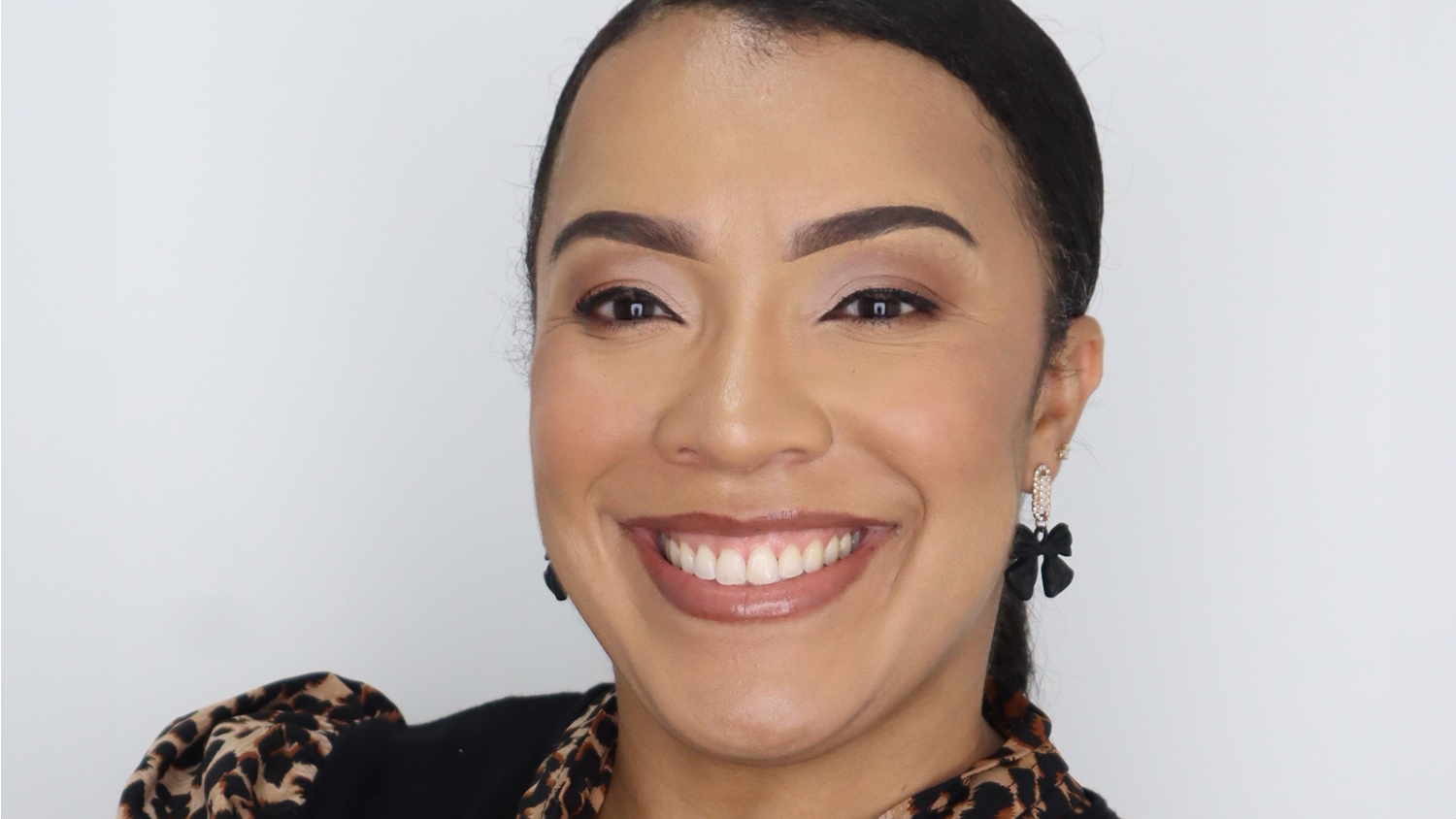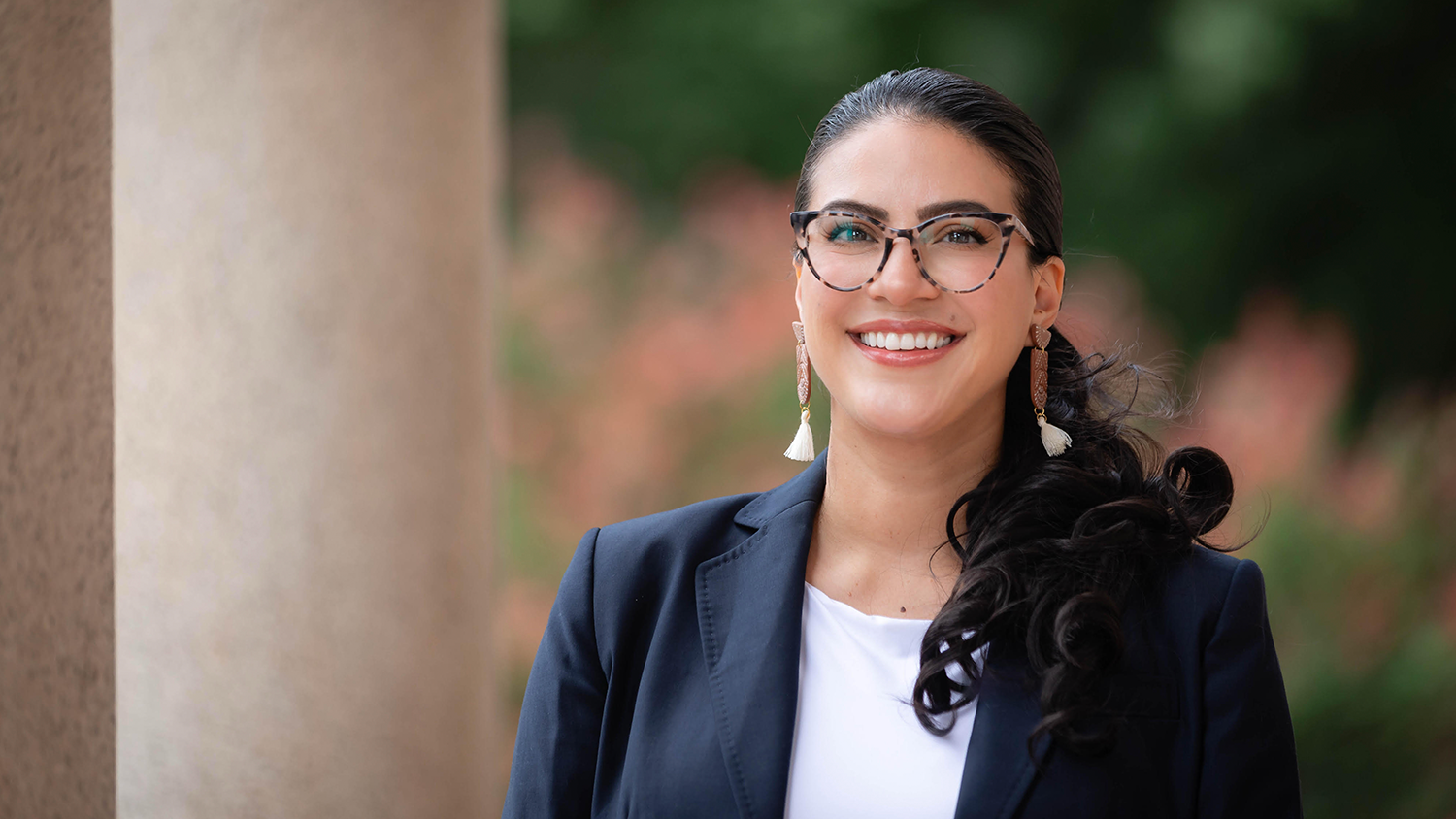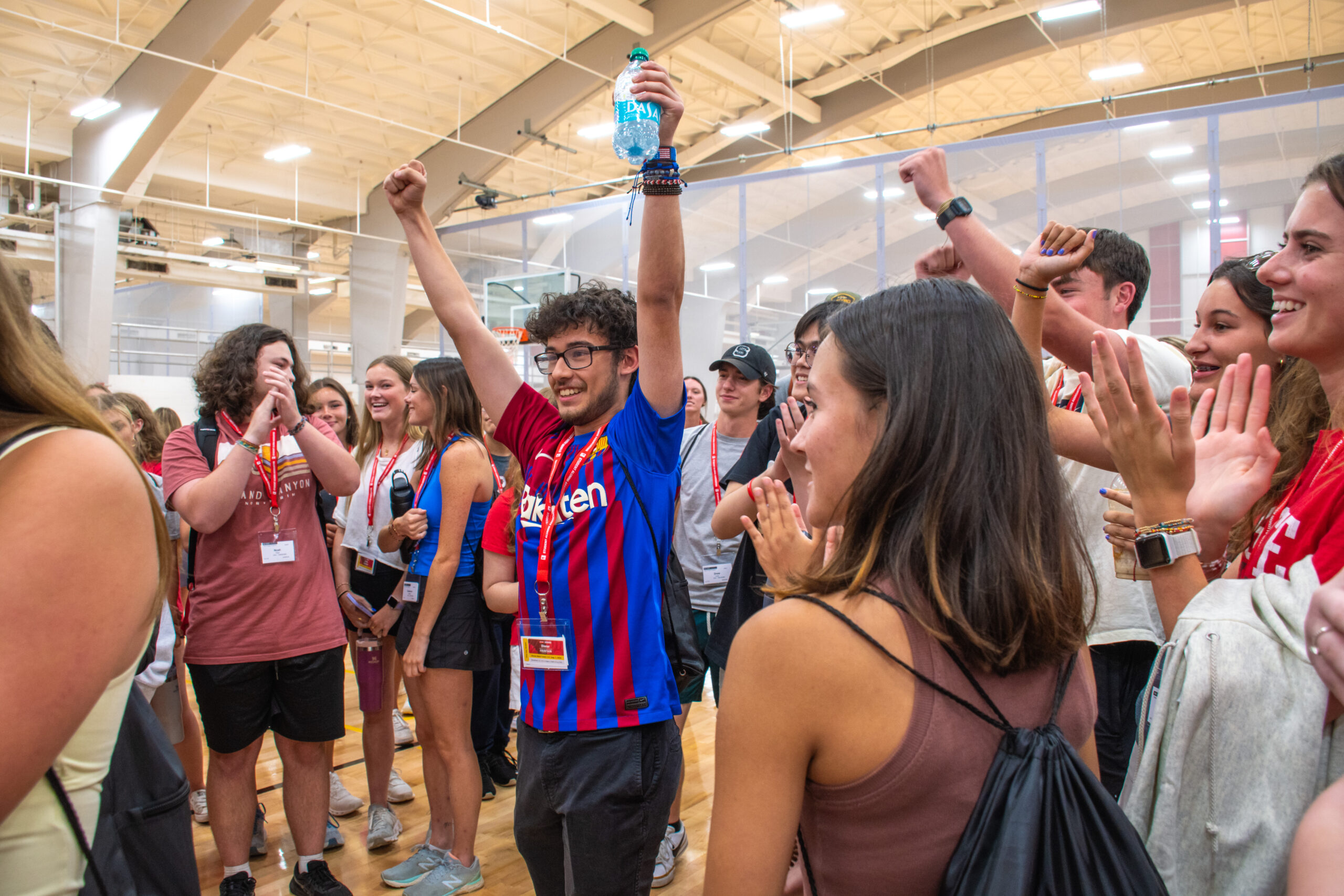Assistant Professor Jamie Pearson Discusses Equity in Education Research, FACES Project at National Events

Jamie Pearson, an assistant professor of special education in the NC State College of Education, is hoping to spark conversations that lead to action around equitable education research through her participation in two nationwide events.
Pearson has been invited to serve as a panelist in the virtual Black Voices in Education Research: Supporting Black Students across the Education Sciences roundtable discussion on Feb. 15.
The event, which is hosted by the White House Initiative on Advancing Educational Equity, Excellence and Economic Opportunity for Black Americans and the Institute of Education Sciences (IES), features a discussion on how the field of education science can support Black students from early childhood through their chosen careers.
Pearson also recently served as a keynote speaker for the Institute of Education Sciences’ Advancing Equity & Inclusion in the Education Sciences annual meeting in January.
“I hope these events spark opportunities for collaboration and innovation among scholars who are committed to equitable school experiences for all learners,” Pearson said. “Many scholars simply don’t know where to begin in this work, which is one of the reasons I always start with positionality and cultural reciprocity. If these events can help researchers pause and reflect on how their backgrounds and experiences are influencing their work, that is a step in the right direction.”
Pearson was invited to speak at both the White House Initiative and IES events as a result of her work in creating the Fostering Advocacy, Communication, Empowerment and Support (FACES) parent-training intervention. The program aims to inform and empower historically underrepresented families and caregivers of children with autism by addressing inequities in access and support services, specifically among Black children, who often face disparities when it comes to being diagnosed.
In 2021, she received an IES Early Career Grant to develop and test the promise of the FACES intervention when delivered by community-based parent educators.
As part of the first phase of this four-year, grant-funded project, Pearson has partnered with the Autism Society of North Carolina and the Exceptional Children’s Assistance Center to assess the populations of autistic youth and families both organizations currently serve. This information will help Pearson and her team refine the FACES intervention in the second phase of the project to address the specific needs of Black families raising autistic children across the state.
During the White House Initiative event, Pearson said she will discuss the FACES intervention as well as strategies that education researchers can employ to support educational equity and excellence for Black students.
Additionally, she plans to share advice for aspiring Black scholars who want to become education researchers.
“To my knowledge, I am the first Black scholar to receive an IES Special Education Early Career Award since its inception in 2013, so I am very passionate about increasing the representation of Black scholars who receive federally funded education research grants,” Pearson said.
In addition to inspiring future Black scholars, Pearson also hopes to help other researchers incorporate equity and inclusion in their own work.
During her keynote speech at the IES annual conference, Pearson shared strategies that included engaging in cultural reflexivity and positionality, as well as sharing how FACES has sought to address barriers in service access for Black autistic youth and their families.
Since delivering her speech, Pearson said she has already met with three researchers who wanted to learn more from her about how to engage in equitable research.
“Sometimes those conversations require a level of vulnerability, but those are the conversations that are the catalysts for equity in education,” she said.
- Categories:


